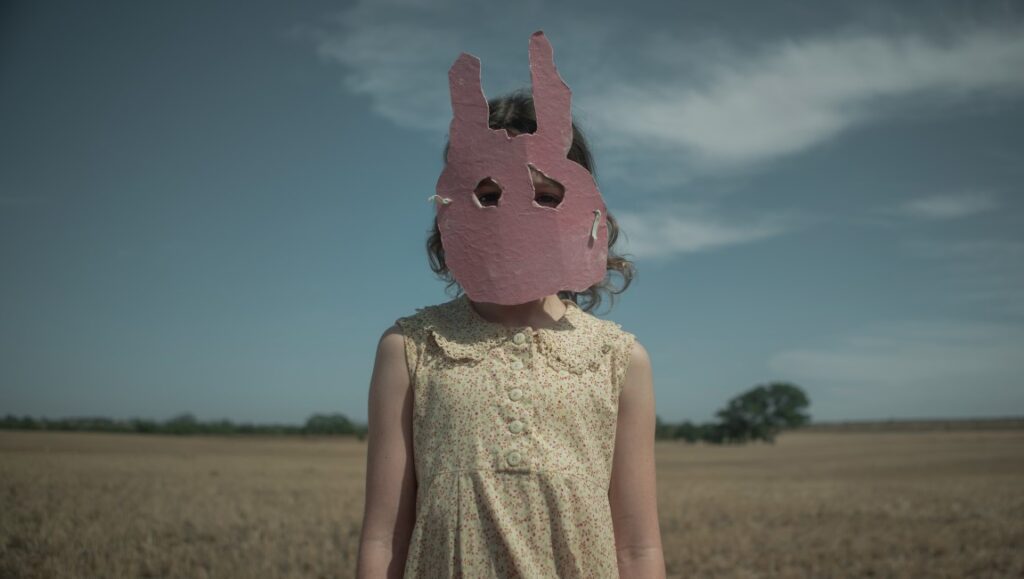Director Daina Reid’s Australian thriller Run Rabbit Run is yet another tired slab of trauma horror seemingly aimed at audiences unfamiliar with such exotic concepts as allegory and metaphor. Anyone with even a grade school–level understanding of the core elements of storytelling will see where this thing is headed by minute ten; everyone else will be asleep long before the end credits roll, as the unraveling of the film’s mystery is not just overt, but dull in execution. Succession star Sarah Snook — who certainly deserves a whole lot better than this nonsense — stars as Sarah, a successful obstetrician and mom to an adorable little girl named Mia (Lily LaTorre), who’s celebrating her seventh birthday as the film opens. Sarah is amicably divorced from her husband, Pete (Damon Herriman), and still recovering from the recent death of her beloved father, but seems to be doing pretty alright considering the circumstances. Wouldn’t you know it, though, Mia starts acting quite peculiar after the birthday celebration, constantly inquiring about a grandmother (Greta Scaachi) she’s never met and demanding to be called by the new name of Alice. Why Alice, you might ask? It turns out that Sarah had a little sister who went missing at the age of — you guessed it — seven, and her name was — double duh — Alice. Mia also happens to be the spitting image of her.
As these things go, the majority of Run Rabbit Run consists of Mia acting both creepy as fuck and annoying as hell, while Sarah stands around looking understandably concerned, teardrops primed to fall from her big blue eyes at any given moment. To Reid’s credit, she is able to create a very specific atmosphere of dread and unease, distinguishing the film a bit from other such offerings. But the end result is so one-note that it becomes altogether suffocating, snuffing out any potential scares in the process and creating torpor above all else. The photography is is at least excellent, consisting of a lot of aerial shots highlighting the natural beauty and vastness of the Australian Outback, but in fairness you would have to leave the lens cap on to screw up such gorgeous vistas, and the beautiful compositions aren’t deployed with any particular design or legible intent.
What’s ultimately inescapable here is how every cliché regarding trauma horror is on full, unabashed display, from how our central protagonist is forced to confront secrets long ago buried to how ignoring one’s past will ultimately lead to its repeating. There’s an odd cynicism to nearly all of the films situated within this specific subgenre, one that says more about the current mindset of today’s culture than anything else, wherein people are forced to pay for their earlier actions and recovery seems ultimately impossible. When the end result is both so inevitable and unrewarding, why even endure the grueling journey in the first place? Audiences would be wise to heed this advice, especially when it comes to films like Run Rabbit Run, where childhood drawings sketched in black crayon and depicting horrific acts are interspersed with ominous shots of pet bunnies, because lazy shorthand is apparently the name of the game. More provocative here is the question of when rabbits became scary? Is this an emerging horror trope, perhaps returning to the Donnie Darko well two decades later? It’s easy to become distracted by such questions while slogging through the recycled thematic terrain that Run, Rabbit, Run has on offer, which is perhaps a more damning indictment in the horror genre than any other. Run, run indeed.
You can currently stream Run Rabbit Run on Netflix.
Published as part of InRO Weekly — Volume 1, Issue 26
Enjoy our content? Want early access to features, interviews, and more? Support us on Patreon!


Comments are closed.